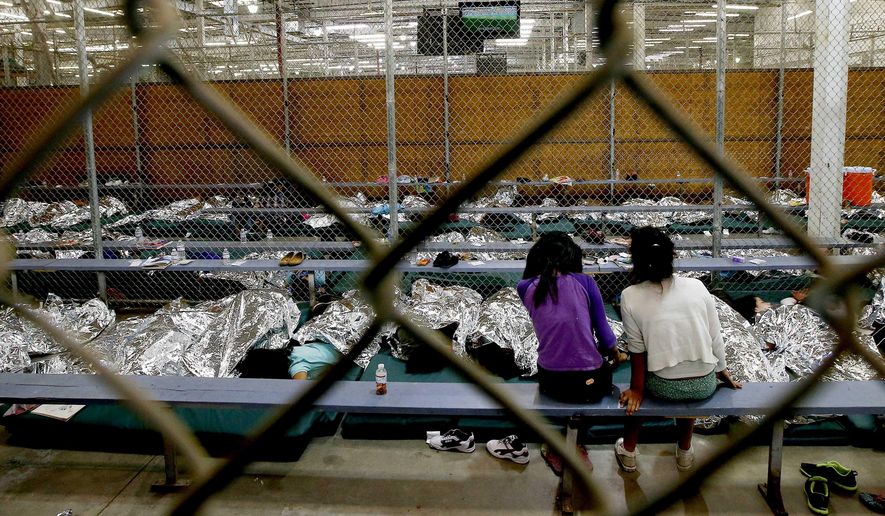The federal government doesn’t follow up with the vast majority of the illegal immigrant Central American children it caught at the border and released into communities over the last two years, leaving them to uncertain care and potential abuse in their new homes, according to a new report Thursday from the Lutheran Immigration and Refugee Service.
Just 15 percent of the nearly 95,000 children who arrived since 2013 got follow-up care, the LIRS said, leaving them not only open to poor conditions in their new homes, but also potentially undiagnosed trauma from the difficult journey across the border, which often times includes sexual assault or other abuse.
Meanwhile their sponsors, usually parents or aunts and uncles, are often overwhelmed. While they get the children enrolled in school, they don’t read the packet federal social workers gave them with information about the children’s care, and don’t secure legal help for the children to navigate the complex legal system.
“Congress should mandate, and the Office of Refugee Resettlement should create, a continuum of post-release services so that every child released from the Office of Refugee Resettlement custody receives some level of follow-up contact in order to safeguard children by connecting them with educational, legal, and child welfare resources,” the report concluded.
With last summer’s surge having largely abated, the children have fallen out of the immigration debate, replaced instead by President Obama’s deportation amnesty for many illegal immigrants and, more recently, by several high-profile slayings attributed to illegal immigrants.
But even though the level is well below its peak, several thousand illegal immigrant children still get caught at the border each month, and nearly all of the ones who arrived the previous two years are still in the U.S. awaiting final court action on their cases.
SEE ALSO: Illegal immigrants’ Obama amnesty approvals to be seized by feds going door-to-door
Obama administration officials have defended their treatment of the children, acknowledging troubles early on in accommodating the hundreds being caught every day at the peak of the surge, but saying they’ve now gotten a handle on matters.
“The safety and well-being of every child in our care is a priority,” said Kenneth J. Wolfe, a spokesman for Health and Human Services, which takes the children once they are released by Homeland Security. “We are dedicated to creating and implementing policies and programs to ensure all unaccompanied children in our care receive the critical services they need. We welcome ongoing research and analysis done on behalf of unaccompanied children who enter our country.”
The children, almost all of them from Central America, generally are looking to get caught. Once apprehended, authorities divide them up — those from Mexico or Canada are often able to be quickly turned around and sent back home, but those from countries further away are required to be processed and allowed a chance to have a court date where they can make their case for staying.
The Border Patrol is supposed to turn the children over to HHS within 72 hours — a target that wasn’t met at the peak of the surge, but is being met now — and HHS’s Office of Refugee Resettlement then holds them in juvenile facilities and tries to place them with relatives or other sponsors.
At the peak of the surge, advocates for the children said they feared HHS wasn’t doing full checks on the sponsors to make sure the children were ending up in beneficial surroundings.
The LIRS report said HHS still doesn’t always wait for fingerprint checks to come back before releasing children to sponsors, “which raises some serious safety concerns.”
SEE ALSO: Martin O’Malley: Give health care to illegals
Of nearly 95,000 children caught and processed since 2013, just 14,000 have gotten follow-up services, which means the status and well-being of the others “is essentially unknown,” said Kimberly Haynes, one of the report’s authors.
The report also called for more protections for children from Mexico and Canada, similar to that of other non-contiguous countries.
• Stephen Dinan can be reached at sdinan@washingtontimes.com.




Please read our comment policy before commenting.